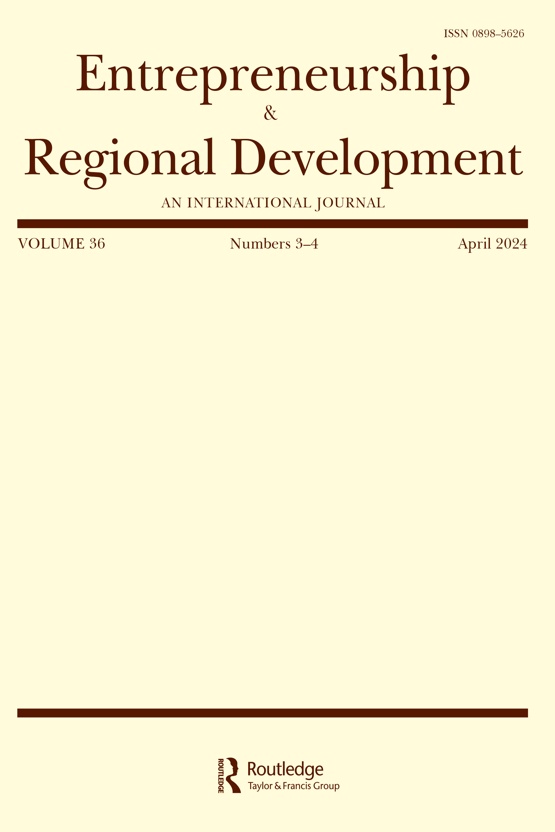How incubation creates value for early-stage entrepreneurs: the People-Place nexus
IF 3.6
1区 经济学
Q2 BUSINESS
引用次数: 3
Abstract
ABSTRACT Entrepreneurial support organizations (ESOs), such as university business incubators, offer tangible and intangible resources to start-ups. Prior research has theorized how these resources create value for entrepreneurs. However, resources are generally studied objectively and as independent dimensions of the incubation process. This qualitative study seeks deeper understanding of how incubation creates value by exploring the subjective lived experience of incubated entrepreneurs. Taking a grounded theorizing approach, we interviewed 44 entrepreneurs involved in ten university incubation programmes in Toronto, Canada. The emergent conceptual model suggests that value is created by the interconnection between tangible and intangible resources. The physical environment (Place) serves as a space for engaging in meaningful interactions among peers, coaches, volunteers and interns (People). Together, they provide an organizational context that fosters embeddedness. The People-Place nexus creates value in three ways: it supports venture development through entrepreneurial learning, which helps the entrepreneur refine the opportunity and start-up the business; it creates community, which fosters collaboration and mutual support for entrepreneurs as they address start-up challenges; and it signals legitimacy to external stakeholders, which facilitates access to resources. Opportunities for future research examining the interrelationship between incubating and embeddedness are suggested. Policy and managerial implications for ESOs are discussed.孵化如何为早期创业者创造价值:人与地的联系
创业支持组织(ESOs)为初创企业提供了有形和无形的资源,如大学创业孵化器。先前的研究已经理论化了这些资源如何为企业家创造价值。然而,资源通常被客观地研究,并作为孵化过程的独立维度。本定性研究旨在通过探索被孵化企业家的主观生活经验,更深入地了解孵化如何创造价值。采用扎实的理论方法,我们采访了44位参与加拿大多伦多10所大学孵化项目的企业家。新兴概念模型认为,价值是由有形资源和无形资源之间的相互联系创造的。物理环境(Place)是同伴、教练、志愿者和实习生(People)之间进行有意义互动的空间。它们共同提供了一种促进嵌入性的组织环境。人地关系通过三种方式创造价值:它通过创业学习支持创业发展,帮助企业家提炼机会并创业;它创造了一个社区,在企业家应对创业挑战时促进合作和相互支持;它向外部利益相关者发出合法性的信号,这有助于获得资源。提出了未来研究孵化性和嵌入性之间相互关系的机会。讨论了对职工自愿退休计划的政策和管理影响。
本文章由计算机程序翻译,如有差异,请以英文原文为准。
求助全文
约1分钟内获得全文
求助全文
来源期刊
CiteScore
7.90
自引率
10.70%
发文量
52
期刊介绍:
Entrepreneurship and Regional Development is unique in that it addresses the central factors in economic development - entrepreneurial vitality and innovation - as local and regional phenomena. It provides a multi-disciplinary forum for researchers and practitioners in the field of entrepreneurship and small firm development and for those studying and developing the local and regional context in which entrepreneurs emerge, innovate and establish the new economic activities which drive economic growth and create new economic wealth and employment. The Journal focuses on the diverse and complex characteristics of local and regional economies which lead to entrepreneurial vitality and endow the large and small firms within them with international competitiveness.

 求助内容:
求助内容: 应助结果提醒方式:
应助结果提醒方式:


